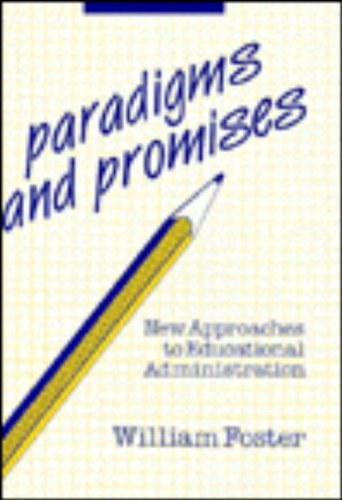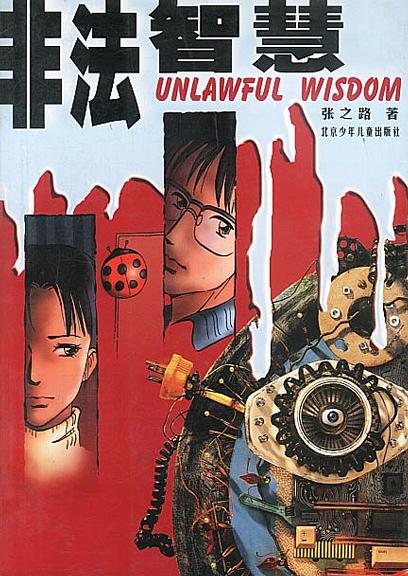
"Shifting Perspectives: Paradigms and Promises"
1
0

胡说八道 2023-08-21 17:36:49
Introduction:
The current tendency in organizational and administrative theory is to turn away from the technical emphasis to the features of culture and politics. The text intends to present a critical theory of administration that links administrative practice to social and cultural issues. Its foundational assumption is that administration involves alignment of people in an educative and transformative fashion.
1. Administration as a moral science:
The context of schooling is a complex fabric woven from the threads of individual lives and citizens, and the social threads of politics and economics. Administrative decisions are moral decisions and, as such, must recognize the weave of the fabric. A new three-tiered model is needed for administrative study. One tier involves the descriptions of perceived reality and economic and political structures to study social organization and administration. The second tier involves understanding individual constructions and interpretations of reality. The third tier is critical inquiry, a reflective process that includes dialogue oriented toward achieving true democratic participation by all members of the community. Administrative science aims to reflect on the present situation, critique it, and mobilize all to change the existing situations.
3. Paradigms and promises: re-viewing administrative theories:
The paradigm defines what is a researchable question and an acceptable answer; it provides boundaries for areas of concern for investigations. Burrell and Morgan (1979) have suggested that organizational sociology has four major paradigms for viewing organizations.
- The first, the functionalist paradigm, embraces the assumptions that the social world is objective, real, and concrete. In this paradigm, all things have a function, all serve some ultimate interest. Thus, schools are functional for social systems insofar as they prepare youngsters for the outside world. The functionalist paradigm treats the organization as a given reality, one that neither needs nor deserves any critical analysis.
- The interpretivist paradigm considers organization as a social construct, an idea shared by others. The methodology used in the interpretive perspective involves questioning those "natural" structures and events, probing how we as individuals come to understand one another.
- A third paradigm, radical humanism, extends the interpretive paradigm by maintaining that socially created structures also serve material interests. Structures have a historical reality that has resulted in differences in power. Individuals do not just construct their own realities in consort with others; they do so in the context of historically determined social structures that constrict free consciousness and serve the interests of only some individuals. The radical humanists, therefore, look to an examination of forms and expressions of power, and have the end goal of creating more equitable and just social structures.
- The fourth paradigm is called "radical structuralism." Although this paradigm also considers a social structure as an objective reality that can be investigated, it views society as a concrete expression of conflicting interests and aims at an analysis of inequalities generated by the capitalist system.
In the field of management, there are three main paradigms.
- There are three major paradigms that influence educational administration theoreticians.
- (1) FUNCTIONALISM: Functionalism in administration is represented by the orthodox theory. These studies assume that organizations are concrete entities populated by role players and that systematic study of these entities will yield reliable and predictable knowledge.
- (2) THE SUBJECTIOVIST POSITION: Subjectivist interpretations argue that organizations are not objectively real phenomena; they are socially constructed. By extension, the subjectivist administrator would value the actions, biographies, and language of the individuals in the organization; the functionalist administrator would be much more concerned with the functioning of the organization as a whole.
- (3) THE CRITICAL FRAME: The theoretical base involves a critical of positivism and the related ideas of fact-value separation and value neutrality in administration, a critique of modern rationality as it is embodied in administrative principles, and a focus on the ideas of power liberation as concerns for administration.
5. The radical reconstruction of schooling:
How do schools contribute to the reproduction of social strata?
How are society and culture reproduced through schooling?
The paradox of how schools are committed to equality while they simultaneously underserve certain segments of the population is to some degree resolved by an analysis of theories of social and cultural production and reproduction. Bowles and Gintis (1976) argue that schools reproduce inequalities because those very inequalities are needed in a hierarchically divided economic system. The relationship between schools and the economy is further explored, including Giddens theory of structuration and Bourdieus theory of cultural capital.
2. A Marxist analysis:
This section primarily discusses the control of culture and the submission of the lower class. Hegemony is a matter of beliefs, values, and hope that the system is right, and that it is you who are wrong, or incapable, or not smart enough. For example, accepting the reality that the rich have more choices for schools, cultural choices. School failure is attributed to students lack of effort.
相关推荐
萤火谷的梦想家
艾莉森•麦吉出生于1960年,是美国《纽约时报》畅销书作家,同时也是大都会州立大学创意写作课的教授。她的作品被翻译成20多种语言并出版,也曾被提名普利策奖,并获得苏斯博士奖金奖、克里斯托弗图书奖、美国 [美]艾莉森•麦吉/[美]克里斯托弗•丹尼斯/绘 2023-03-27 16:50:25鬼马女神捕1·绝密卧底(上)
腹黑凤凰vs毒舌鸡妖——蓝翎:“小姬,跟我去人界吧!”姬十四:“干吗?让人宰了我做小鸡炖蘑菇吗?”蓝翎:“不啊,让妖怪宰了你做小鸡炖蘑菇更气派。”凤凰蓝翎和鸡妖姬十四生活在无忧无虑的灵界。他们的故乡叫 郝天晓 2023-04-17 00:22:47© 2023-2025 百科书库. All Rights Reserved.












发表评价